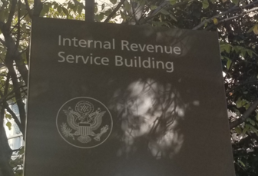
Simple Tax Tips Are Sometimes the Best
People often struggle with record keeping and are typically so busy that they are simply unaware of tools or services that have been developed that could greatly improve the recording of tax deductible expenses, mileage, etc. Many topics we could cover here, but two that are universal.
If you are in business, you have a phone and a car. Cell phones are pretty typical for smaller companies. What we usually see is a personal cell phone bill of about $150-250 a month, and of course the business owner wants to deduct it all. When you start asking questions however, it’s almost always a family plan with the spouse and kids on it, so 80% of the cost and use is personal and not deductible.
What you could try and likely have it be OK with the IRS is to only deduct the one line charge from the bill and perhaps the taxes for the group, but even that might be stretching it. How do you fix that? Two things can help. One, when you open the account, do it in the name of the company and not yourself personally, and have the bill sent to the company. This way, your costs and the taxes are at least potentially defend-able. Then, hire your family. Just to deduct the phone bill? No, really hire your kids and hire your spouse. It doesn’t need to be full time, but part of justifiable benefits as a policy, noted in your company handbook, could be a phone.
As a sole proprietor, there are many other potential benefits, such as paying wages to children without FICA or FUTA taxes being deducted. Also, those same kids can earn up to the current single filer standard deduction each year and not pay federal income tax under the new code. Then, perhaps half or even more of their phone bill could be legit! You have legal deductions and you save employer taxes as a bonus, all while keeping more of the money that you work so hard for “in the family.”
As for the car, whether you buy it personally and have your business write you reimbursement checks, or own it in the business and write reimbursement checks to the company for personal use, the issue is in parity with the phone. What people can do to help though is to not estimate! What we have seen over and over is people who haven’t kept records of the business versus personal mileage who are then forced to estimate at tax time. Since they have no proper log to help defend the deduction if they are audited, they typically estimate less business miles then they have actually driven out of fear. And at +/- 65 cents a mile, that can be a LARGE COSTLY mistake.
How do you fix that? Simply join the modern world and get one of numerous apps that track every start and stop, as long as you have your phone with you (and who doesn’t). QuickBooks has a mileage app built right into the program. If you’re not on QuickBooks, MileIQ and similar apps are available and very easy to use. Just click the app to look at all your trips and swipe left or right with your thumb for business or personal! It couldn’t be easier!
It just takes a few moments to put a process and plan in place so you can enjoy the deductions. And, more importantly, you will be able to defend them if you are audited.